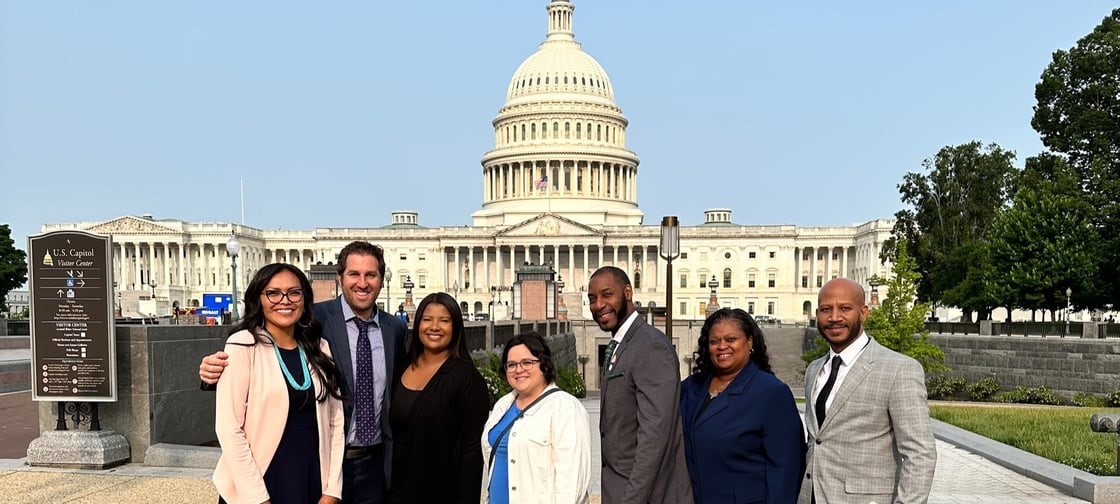Washington, D.C. Today, the National Alliance for Public Charter Schools released the latest report evaluating the health of the charter public school movement in key states across the country. Following the first report released in October 2014, this second edition measures movement growth, innovation and quality, while this year doubling the number of quality measures. Due to these quality additions, a total of 18 states with charter school laws met the criteria for inclusion in this years report.
The Health of the Charter Public School Movement: A State-by-State Analysis ranks Washington D.C. in the number one spot, followed by Indiana, Michigan, Massachusetts, Louisiana, Florida, Arizona, Rhode Island, Colorado and Missouri. At the bottom of the list are Pennsylvania, New Mexico, Utah and Oregon.
The report finds that states with higher rankings are strong in many of the following areas: they have a large percentage of students in charter schools, strong rates of new schools opening and they serve a significant amount of historically underserved students. They also measure high on innovation meaning they have a diverse array of school models, and on quality meaning their charter schools are showing strong academic gains.
“As charter schools continue their reach across the country to respond to increased demand from families, we realize the mounting importance of having a stronger, improved framework in place to inform state and national leaders of what is working and where they can improve,” said Nina Rees, president and CEO of the National Alliance for Public Charter Schools. “It is our goal that with this latest report, leaders will be able to see where they can strengthen their charter laws, learn from the best examples and take action to further advance the health of charter schools in their state and nationally.”
Using 13 weighted indicators, some indicators, including learning gains, received a heavier weighting than others. The two new quality indicators are based on how charters performed on state accountability measures, including whether the state increased the percentage of charters receiving top ratings and decreased the percentage of charters receiving bottom ratings. A full list of indicators and their weights used to score states from the report can be found here.
Intended as a companion piece to the annual state charter law rankings released earlier this year, the new health rankings provide a comprehensive picture of how charter laws are working in practice. Most of the states with higher-ranked charter school laws are also highly ranked in the health-of-the-movement rankings. However, a couple of states with higher-ranked charter school laws did not rank very high in this latest report (and vice versa). Some of the key takeaways of the report include:
A strong charter law is necessary but cannot on its own drive positive results for charter schools. Other factors also come into play including quality authorizers, effective charter support organizations, strong school leaders and teachers and engaged parents.
Some states charter movements have achieved strong results despite their lower-ranked laws. This is most likely the result of strong authorizers going beyond their weaker state requirements as well as the presence of high-performing charter schools willing to thoughtfully replicate and expand.
Supportive laws need time to move the needle in states that have previously experienced challenges. Accounting for the lag time between policy changes and their actual impact on student results, some states with recently enacted strong laws have yet to see improved results.
While this years report uses an expanded and stronger set of criteria as compared to the 2014 report, there was still significant, positive movement in three states: Nevada, Indiana and Arizona. Nevadas standing increased for several reasons: A higher percentage of the state’s public schools are now charters, a higher percentage of the state’s public school students are now charter students, there is a diverse array of schools (which increases the innovation score), and Nevada fared well on the new accountability metrics. Indiana, which came in second overall this year, had a higher relative standing because the state saw an increase in the percentage of high-performing charter schools and it closed a number of low-performing charters. Arizona saw strong gains due to a strong performance on its states accountability metrics, with an increase in the percentage of charters that are high performing and a decrease in the percentage of charters that are low performing.
Adding the two new quality indicators, drawn from state accountability systems, was done to gauge how state charter school movements improved over time through first, increasing the percentage of charters receiving the top ratings in state accountability systems, and second, decreasing the percentage of charters receiving the bottom ratings. Given the fluid nature of some state accountability systems, this made many of the 25 states not included in the rankings ineligible in this years report. To provide a more comprehensive look at how every state actually measures up, the National Alliance is developing its own model to assess a more complete picture on charter public school performance. This will allow a broader number of states to be included in the next edition of this report.
Click here to download the Health of the Charter Public School Movement: A State-by-State Analysis.
About Charter Schools
Charter schools are independent, public, and tuition-free schools that are given the freedom to be more innovative while being held accountable for advancing student achievement. Since 2010, many research studies have found that students in charter schools do better in school than their traditional school peers. For example, one study by the Center for Research on Education Outcomes at Stanford University found that charter schools do a better job teaching low income students, minority students, and students who are still learning English than traditional schools. Separate studies by the Center on Reinventing Public Education and Mathematica Policy Research have found that charter school students are more likely to graduate from high school, go on to college, stay in college and have higher earnings in early adulthood.
About the National Alliance for Public Charter Schools
The National Alliance for Public Charter Schools is the leading national nonprofit organization committed to advancing the public charter school movement. Our mission is to lead public education to unprecedented levels of academic achievement by fostering a strong charter movement. For more information, please visit www.publiccharters.org.







